The 8th International Bio-Logging Science Symposium: Sustainable Initiatives and Development of the Next Generation
The 8th International Bio-Logging Science Symposium was held at the Ito International Research Center, University of Tokyo on March 4 to 8, 2024 (main symposium 4th-8th, public lectures 9th). This is the world's largest symposium on Bio-Logging, in which devices are attached to animals to obtain physiological, behavioral, ecological and environmental data. Japanese researchers first coined the term Bio-Logging during the first iteration of this symposium in Tokyo in 2003 and this time it returned to Tokyo for the first time since the first gathering 21 years ago. The Symposium attracted 400 in-person delegates from 32 countries and regions. The public lectures attracted 122 in-person participants, mainly high school and university students, with a further 90 participants tuning into public lectures online.
With the aim of contributing to the global development of scientific research using Bio-Logging, the event provided insight into the latest Bio-Logging trends, opportunities to interact with leading researchers, and a platform to present research.
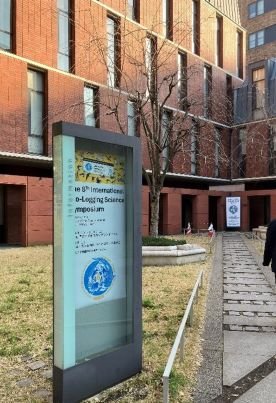
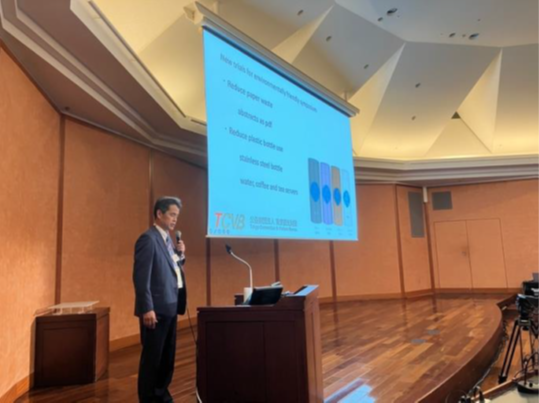
Sustainability Initiatives
The Symposium significantly reduced paper waste by distributing only a simple flyer and posting symposium information on the website instead. In addition, reusable tumblers were distributed along with eco-bags and water servers were placed at eight locations throughout the venue. Repeated use of these tumblers during coffee breaks was encouraged, thereby reducing the consumption of paper cups and plastic bottles. These sustainability efforts were also publicized on the conference website to ensure participants' cooperation.
Website sustainability notice:
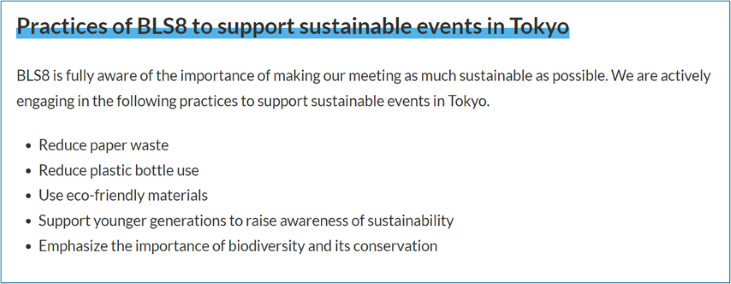
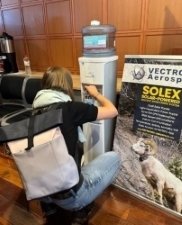
The event was well received by participants, who commented that it was a very good initiative that reduced waste and that they will continue using the eco-bags and the tumblers after they return home.
The Executive Committee of the International Bio-Logging Society also confirmed its policy to continue reducing paper and plastic waste and reduce its carbon footprint, as an academic society deeply involved in wildlife protection and ecosystem conservation.
Public Lectures for the Next Generation
4 lectures were given, 3 of which were delivered in English by overseas guests including a talk by a NASA astronaut. The students asked many questions and had lively discussions. The event was especially meaningful as an opportunity for Japan's young researchers, who could engage directly with global trends.
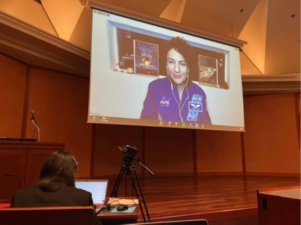
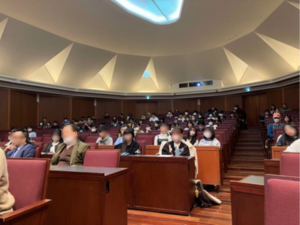
Support from the Tokyo Convention & Visitors Bureau (TCVB)
TCVB provided funding towards environmental initiatives and lectures for residents, including high school and university students. TCVB also provided financial and in-kind support. Participants enjoyed half-day city tours of Tokyo courtesy of TCVB and guidance and information were available from the hospitality team onsite.
TCVB will continue to publish examples of advanced approaches to sustainability in business events in Tokyo.

